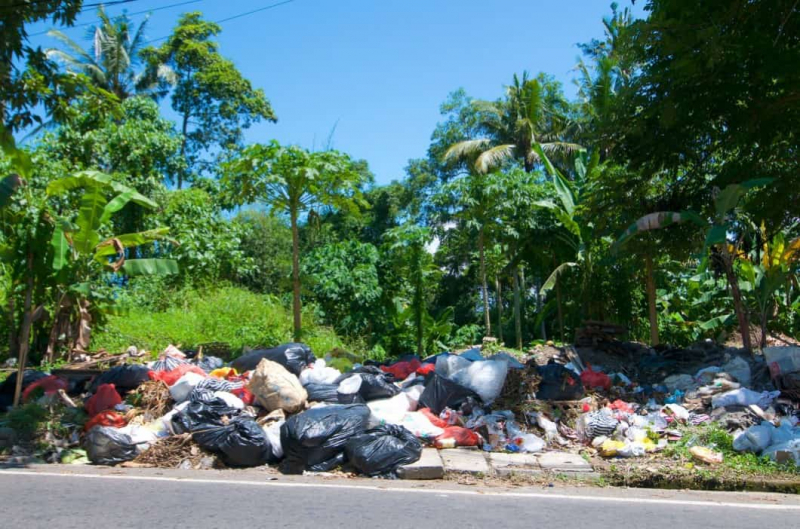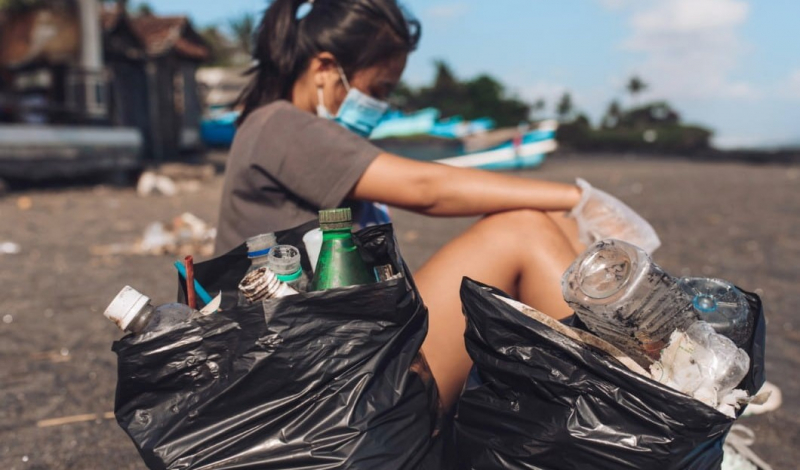Bali, a dreamy destination known for its sunny beaches, turquoise seas, and verdant forests, attracts travelers from across the globe. Whether it’s surfing, yoga in Ubud, or simply relaxing poolside with a coconut, this Indonesian island seemingly offers something for every tourist.
Its breathtaking temples and thriving culture have cemented its status as a globally coveted hotspot. However, the recent surge in tourism casts a growing shadow on this tropical gem; plastic litters the shore, and overflowing landfills threaten the island’s allure.
The Mounting Garbage Problem
The garbage problem in Bali has reached crisis point, predominantly due to tourism. The island’s largest landfill, Suwung TPA, receives an unbelievable 1,800 tons of waste each day; this far exceeds the amount expected from the local population of 1.1 million. Environment Minister Hanif Faisol Nurofiq noted that approximately 500 tons of this waste originates from hotels, resorts, and similar facilities geared toward tourists. “If the population is only 1.1 million, where is this waste coming from?” the minister inquired, explicitly blaming the tourism sector.
The environmental impact cannot be denied. Plastic refuse washes up on Bali’s beaches, and ever-growing landfills scar the island’s otherwise pristine landscapes. While tourists often arrive to enjoy Bali’s beauty, a number remain unaware of the repercussions of their visits. In most cases, this means that local communities and ecosystems bear the impact.
Government Cracks Down on Hotels in Bali
As a response to the issue, the Indonesian government is acting decisively, mainly targeting large hotels in Bali. Minister Nurofiq has given star-rated hotels a three-month ultimatum to take responsibility for their refuse. Unlike smaller places like private villas or guesthouses, these larger properties produce significant waste due to their larger size. The government made it clear that using local authorities to take away the waste should be avoided if possible.
Click here to preview your posts with PRO themes ››
Nurofiq warned that failing to comply could lead to sanctions, pointing out the urgency: “Bali matters; if we don’t act now, the situation will be irreversible.” The stakes are high because the island’s environmental state, its culture, and its tourism industry are intertwined with one another. Governor Wayan Koster agreed, “Without culture, tourism cannot thrive in Bali.” Clean beaches and unspoiled landscapes are crucial to conserving Bali’s unique charm; however, they are at risk if this continues.

Balancing Tourism and Sustainability
The relationship between Bali’s environmental state, culture, and tourism is inseparable. The island’s charm stems from its natural beauty and cultural heritage, yet unchecked waste puts them in danger. The government’s efforts to hold businesses accountable signal a larger effort to find a solution: anyone who makes money from Bali’s popularity must do their part to protect its future. Hotels and resorts are some of the greatest offenders, and they must change.
The main message is that Bali cannot thrive if the garbage problem continues to pile up. By holding the tourism sector accountable and pushing responsible practices, the government wants to maintain the island’s allure for years to come. If action isn’t taken, the qualities that make Bali a treasure will be lost.


